- Home
- Martin Amis
Heavy Water: And Other Stories Page 2
Heavy Water: And Other Stories Read online
Page 2
“Plus,” said Jack, “the lyric has always been the natural medium for the untrammeled expression of feeling.”
“Yeah,” said Jeff. “With the sonnet you’re stuck in this thesis-antithesis-synthesis routine.”
Joan said, “I mean what are we doing here? Reflecting the world or illuminating it?”
It was time for Joe to speak. “Please,” he said. “Are we forgetting that ‘ ’Tis’ was a sonnet, before the rewrites? Were we on coke when we said, in the summer, that we were going to go for the sonnet?”
The answer to Joe’s last question, incidentally, was yes; but Luke looked carefully round the room. The Chinese lunch they’d had the secretary phone out for lay on the coffee table like a child’s experiments with putty and paint and designer ooze. It was four o’clock and Luke wanted to get away soon. To swim and lie in the sun. To make himself especially lean and bronzed for his meeting with the young actress Henna Mickiewicz. He faked a yawn.
“Luke’s lagged,” said Joe. “Tomorrow we’ll talk some more, but I’m pretty sure I’m recommitted to the sonnet.”
“Sorry,” said Alistair. “Me yet again. Sorry.”
“Oh yes,” said the woman’s voice. “He was here a minute ago.… No, he’s there. He’s there. Just a second.”
Alistair jerked the receiver away from his ear and stared at it. He started listening again. It seemed as if the phone itself were in paroxysm, all squawk and splat like a cabby’s radio. Then the fit passed, or paused, and a voice said tightly but proudly, “Hugh Sixsmith?”
It took Alistair a little while to explain who he was. Sixsmith sounded surprised but, on the whole, rather intrigued to hear from him. They moved on smoothly enough to arrange a meeting (after work, the following Monday), before Alistair contrived to put in: “Mr. Sixsmith, there’s just one thing. This is very embarrassing, but last night I got into a bit of a state about not hearing from you for so long and I’m afraid I sent you a completely mad letter which I…” Alistair waited. “Oh, you know how it is. For these screenplays, you know, you reach into yourself, and then time goes by and…”
“My dear boy, don’t say another word. I’ll ignore it. I’ll throw it away. After a line or two I shall simply avert my unpained eye,” said Sixsmith, and started coughing again.
Hazel did not come down to London for the weekend. Alistair did not go up to Leeds for the weekend. He spent the time thinking about that place in Earls Court Square where screenplay writers read from their screenplays and drank biting Spanish red wine and got stared at by tousled girls who wore thick overcoats and no makeup and blinked incessantly or not at all.
Luke parked his Chevrolet Celebrity on the fifth floor of the studio car park and rode down in the elevator with two minor executives in tracksuits who were discussing the latest records broken by “’Tis he whose yester-evening’s high disdain.” He put on his dark glasses as he crossed the other car park, the one reserved for major executives. Each bay had a name on it. It reassured Luke to see Joe’s name there, partly obscured by his Range Rover. Poets, of course, seldom had that kind of clout. Or any clout at all. He was glad that Henna Mickiewicz didn’t seem to realize this.
Joe’s office: Jim, Jack, Joan, but no Jeff. Two new guys were there. Luke was introduced to the two new guys. Ron said he spoke for Don when he told Luke that he was a great admirer of his material. Huddled over the coffee percolator with Joe, Luke asked after Jeff, and Joe said, “Jeff’s off the poem,” and Luke just nodded.
They settled in their low armchairs.
Luke said, “What’s ‘A Welshman to Any Tourist’ doing?”
Don said, “It’s doing good but not great.”
Ron said, “It won’t do what ‘The Gap in the Hedge’ did.”
Jim said, “What did ‘Hedge’ do?”
They talked about what “Hedge” did. Then Joe said, “Okay. We’re going with the sonnet. Now. Don has a problem with the octet’s first quatrain, Ron has a problem with the second quatrain, Jack and Jim have a problem with the first quatrain of the sestet, and I think we all have a problem with the final couplet.”
Alistair presented himself at the offices of the LM in an unblinking trance of punctuality. He had been in the area for hours, and had spent about fifteen quid on teas and coffees. There wasn’t much welcome to overstay in the various snack bars where he lingered (and where he moreover imagined himself unfavorably recollected from his previous LM vigils), holding with both hands the creaky foam container, and watching the light pour past the office windows.
As Big Ben struck two, Alistair mounted the stairs. He took a breath so deep that he almost fell over backwards—and then knocked. An elderly office boy wordlessly showed him into a narrow, rubbish-heaped office that contained, with difficulty, seven people. At first Alistair took them for other screenplay writers and wedged himself behind the door, at the back of the queue. But they didn’t look like screenplay writers. Not much was said over the next four hours, and the identities of Sixsmith’s supplicants emerged only partially and piecemeal. One or two, like his solicitor and his second wife’s psychiatrist, took their leave after no more than ninety minutes. Others, like the VAT man and the probation officer, stayed almost as long as Alistair. But by six forty-five he was alone.
He approached the impossible haystack of Sixsmith’s desk. Very hurriedly he started searching through the unopened mail. It was in Alistair’s mind that he might locate and intercept his own letter. But all the envelopes, of which there were a great many, proved to be brown, windowed, and registered. Turning to leave, he saw a Jiffy bag of formidable bulk addressed to himself in Sixsmith’s tremulous hand. There seemed no reason not to take it. The old office boy, Alistair soon saw, was curled up in a sleeping bag under a worktable in the outer room.
On the street he unseamed his package in a ferment of gray fluff. It contained two of his screenplays, Valley of the Stratocasters and, confusingly, Decimator. There was also a note:
I have been called away, as they say. Personal ups and downs. I shall ring you this week and we’ll have—what? Lunch?
Enclosed, too, was Alistair’s aggrieved letter—unopened. He moved on. The traffic, human and mechanical, lurched past his quickened face. He felt his eyes widen to an obvious and solving truth: Hugh Sixsmith was a screenplay writer. He understood.
After an inconclusive day spent discussing the caesura of “Sonnet”’s opening line, Luke and his colleagues went for cocktails at Strabismus. They were given the big round table near the piano.
Jane said, “TCT is doing a sequel to ‘’Tis.’”
Joan said, “Actually it’s a prequel.”
“Title?” said Joe.
“Undecided. At TCT they’re calling it ‘’Twas.’”
“My son,” said Joe thoughtfully, after the waiter had delivered their drinks, “called me an asshole this morning. For the first time.”
“That’s incredible,” said Bo. “My son called me an asshole this morning. For the first time.”
“So?” said Mo.
Joe said, “He’s six years old, for Christ’s sake.”
Phil said, “My son called me an asshole when he was five.”
“My son hasn’t called me an asshole yet,” said Jim. “And he’s nine.”
Luke sipped his Bloody Mary. Its hue and texture made him wonder whether he could risk blowing his nose without making yet another visit to the bathroom. He hadn’t called Suki for three days. Things were getting compellingly out of hand with Henna Mickiewicz. He hadn’t actually promised her a part in the poem, not on paper. Henna was great, except you kept thinking she was going to suddenly sue you anyway.
Mo was saying that each child progresses at his own rate, and that later lulls regularly offset the apparent advances of the early years.
Jim said, “Still, it’s a cause of concern.”
Mo said, “My son’s three. And he calls me an asshole all the time.”
Everybody looked suitably impressed.
The trees were in leaf, and the rumps of the tourist buses were thick and fat in the traffic, and all the farmers wanted fertilizer admixes rather than storehouse insulation when Sixsmith finally made his call. In the interim, Alistair had convinced himself of the following: before returning his aggrieved letter, Sixsmith had steamed it open and then resealed it. During this period, also, Alistair had grimly got engaged to Hazel. But the call came.
He was pretty sure he had come to the right restaurant. Except that it wasn’t a restaurant, not quite. The place took no bookings, and knew of no Mr. Sixsmith, and was serving many midday breakfasts to swearing persons whose eyes bulged over mugs of flesh-colored tea. On the other hand, there was alcohol. All kinds of people were drinking it. Fine, thought Alistair. Fine. What better place, really, for a couple of screenplay writers to…
“Alistair?”
Confidently Sixsmith bent his long body into the booth. As he settled, he looked well pleased with the maneuver. He contemplated Alistair with peculiar neutrality, but there was then something boyish, something consciously remiss, in the face he turned to the waiter. As Sixsmith ordered a gin and tonic, and as he amusingly expatiated on his weakness for prawn cocktails, Alistair found himself wryly but powerfully drawn to this man, to this rumpled screenplay writer with his dreamy gaze, the curious elisions of his somewhat slurred voice, and the great dents and bone shadows of his face, all the faulty fontanels of vocational care. He knew how old Sixsmith was. But maybe time moved strangely for screenplay writers, whose flames burnt so bright…
“And as for my fellow artisan in the scrivener’s trade: Alistair. What will you have?”
At once Sixsmith showed himself to be a person of some candor. Or it might have been that he saw in the younger screenplay writer someone before whom all false reticence could be cast aside. Sixsmith’s estranged second wife, it emerged, herself the daughter of two alcoholics, was an alcoholic. Her current lover (ah, how these lovers came and went!) was an alcoholic. To complicate matters, Sixsmith explained as he rattled his glass at the waiter, his daughter, the product of his first marriage, was an alcoholic. How did Sixsmith keep going? Despite his years, he had, thank God, found love, in the arms of a woman young enough (and, by the sound of it, alcoholic enough) to be his daughter. Their prawn cocktails arrived, together with a carafe of hearty red wine. Sixsmith lit a cigarette and held up his palm toward Alistair for the duration of a coughing fit that turned every head in the room. Then, for a moment, understandably disoriented, he stared at Alistair as if uncertain of his intentions, or even his identity. But their bond quickly re-established itself. Soon they were talking away like hardened equals—of Trumbo, of Chayevsky, of Towne, of Eszterhas.
Around two thirty, when, after several attempts, the waiter succeeded in removing Sixsmith’s untouched prawn cocktail, and now prepared to serve them their braised chops with a third carafe, the two men were arguing loudly about early Puzo.
Joe yawned and shrugged and said languidly, “You know something? I was never that crazy about the Petrarchan rhyme scheme anyway.”
Jan said, “‘Composed at—Castle’ is ABBA ABBA.”
Jen said, “So was ‘’Tis.’ Right up until the final polish.”
Jon said, “Here’s some news. They say ‘Composed at—Castle’ is in turnaround.”
“You’re not serious,” said Bo. “It’s released this month. I heard they were getting great preview reaction.”
Joe looked doubtful. “‘’Tis’ has made the suits kind of antsy about sonnets. They figure lightning can’t strike twice.”
“ABBA ABBA,” said Bo with distaste.
“Or,” said Joe. “Or… or we go unrhymed.”
“Unrhymed?” said Phil.
“We go blank,” said Joe.
There was a silence. Bill looked at Gil, who looked at Will.
“What do you think, Luke?” said Jim. “You’re the poet.”
Luke had never felt very protective about “Sonnet.” Even its original version he had regarded as little more than a bargaining chip. Nowadays he rewrote “Sonnet” every night at the Pinnacle Trumont before Henna arrived and they started torturing room service. “Blank,” said Luke. “Blank. I don’t know, Joe. I could go ABAB ABAB or even ABAB CDCD. Christ, I’d go AABB if I didn’t think it’d tank the final couplet. But blank. I never thought I’d go blank.”
“Well, it needs something,” said Joe.
“Maybe it’s the pentameter,” said Luke. “Maybe it’s the iamb. Hey, here’s one from left field. How about syllabics?”
* * *
At five forty-five Hugh Sixsmith ordered a gin and tonic and said, “We’ve talked. We’ve broken bread. Wine. Truth. Screenplay-writing. I want to talk about your work, Alistair. Yes, I do. I want to talk about Offensive from Quasar 13.”
Alistair blushed.
“It’s not often that… But one always knows. That sense of pregnant arrest. Of felt life in its full… Thank you, Alistair. Thank you, I have to say that it rather reminded me of my own early work.”
Alistair nodded.
Having talked for quite some time about his own maturation as a screenplay writer, Sixsmith said, “Now. Just tell me to shut up any time you like. And I’m going to print it anyway. But I want to make one tiny suggestion about Offensive from Quasar 13.”
Alistair waved a hand in the air.
“Now,” said Sixsmith. He broke off and ordered a prawn cocktail. The waiter looked at him defeatedly. “Now,” said Sixsmith. “When Brad escapes from the Nebulan experiment lab and sets off with Cord and Tara to immobilize the directed-energy scythe on the Xerxian attack ship—where’s Chelsi?”
Alistair frowned.
“Where’s Chelsi? She’s still in the lab with the Nebulans. On the point of being injected with a Phobian viper venom, moreover. What of the happy ending? What of Brad’s heroic centrality? What of his avowed love for Chelsi? Or am I just being a bore?”
The secretary, Victoria, stuck her head into the room and said, “He’s coming down.”
Luke listened to the sound of twenty-three pairs of legs uncrossing and recrossing. Meanwhile he readied himself for a sixteen-tooth smile. He glanced at Joe, who said, “He’s fine. He’s just coming down to say hi.”
And down he came: Jake Endo, exquisitely Westernized and gorgeously tricked out and perhaps thirty-five. Of the luxury items that pargeted his slender form, none was as breathtaking as his hair, with its layers of pampered light.
Jake Endo shook Luke’s hand and said, “It’s a great pleasure to meet you. I haven’t read the basic material on the poem, but I’m familiar with the background.”
Luke surmised that Jake Endo had had his voice fixed. He could do the bits of the words that Japanese people were supposed to find difficult.
“I understand it’s a love poem,” he continued. “Addressed to your girlfriend. Is she here with you in L.A.?”
“No. She’s in London.” Luke found he was staring at Jake Endo’s sandals, wondering how much they could possibly have cost.
A silence began its crescendo. This silence had long been intolerable when Jim broke it, saying to Jake Endo, “Oh, how did ‘Lines Left Upon a Seat in a Yew-Tree, Which Stands Near the Lake of Easthwaite, on a Desolate Part of the Shore, Commanding a Beautiful Prospect’ do?”
“‘Lines’?” said Jake Endo. “Rather well.”
“I was thinking about ‘Composed at—Castle,’” said Jim weakly.
The silence began again. As it neared its climax, Joe was suddenly reminded of all this energy he was supposed to have. He got to his feet saying, “Jake? I guess we’re nearing our tiredness peak. You’ve caught us at kind of a low point. We can’t agree on the first line. First line? We can’t see our way to the end of the first foot.”
Jake Endo was undismayed. “There always are these low points. I’m sure you’ll get there, with so much talent in the room. Upstairs we’re very confident. We think it’s going to be a big summer poem.”
“No, we’re very confident, too,” said Joe. “There’s a lot of belief here. A lot of belief. We’re behind ‘Sonnet’ all the way.”
“Sonnet?” said Jake Endo.
“Yeah, sonnet. ‘Sonnet.’”
“‘Sonnet’?” said Jake Endo.
“It’s a sonnet. It’s called ‘Sonnet.’”
In waves the West fell away from Jake Endo’s face. After a few seconds he looked like a dark-age warlord in mid-campaign, taking a glazed breather before moving on to the women and the children.
“Nobody told me,” he said as he went toward the telephone, “about any sonnet.”
The place was closing. Its tea trade and its after-office trade had come and gone. Outside, the streets glimmered morbidly. Members of the staff were donning macs and overcoats. An important light went out. A fridge door slammed.
“Hardly the most resounding felicity, is it?” said Sixsmith.
Absent or unavailable for over an hour, the gift of speech had been restored to Alistair—speech, that prince of all the faculties. “Or what if…” he said. “What if Chelsi just leaves the experiment lab earlier?”
“Not hugely dramatic,” said Sixsmith. He ordered a carafe of wine and inquired as to the whereabouts of his braised chop.
“Or what if she just gets wounded? During the escape. In the leg.”
“So long as one could avoid the wretched cliche: girl impeded, hero dangerously tarrying. Also, she’s supernumerary to the raid on the Xerxian attack ship. We really want her out of the way for that.”
Alistair said, “Then let’s kill her.”
“Very well. Slight pall over the happy ending. No, no.”
A waiter stood over them, sadly staring at the bill in its saucer.
“All right,” said Sixsmith. “Chelsi gets wounded. Quite badly. In the arm. Now what does Brad do with her?”
“Drops her off at the hospital.”

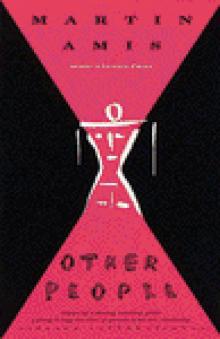 Other People
Other People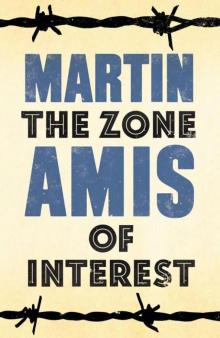 The Zone of Interest
The Zone of Interest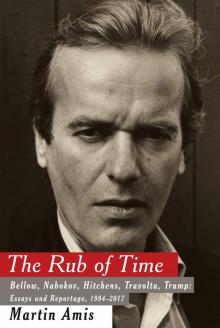 The Rub of Time: Bellow, Nabokov, Hitchens, Travolta, Trump
The Rub of Time: Bellow, Nabokov, Hitchens, Travolta, Trump Koba the Dread
Koba the Dread Success
Success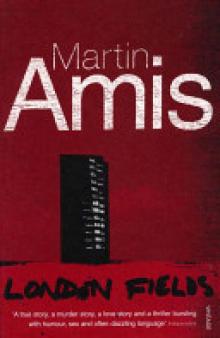 London Fields
London Fields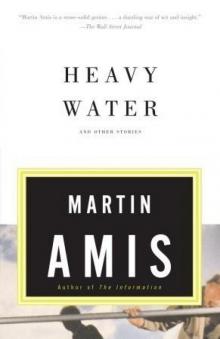 Heavy Water: And Other Stories
Heavy Water: And Other Stories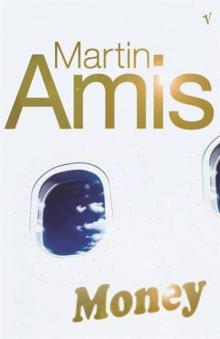 Money
Money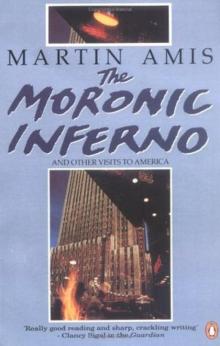 The Moronic Inferno and Other Visits to America
The Moronic Inferno and Other Visits to America Yellow Dog
Yellow Dog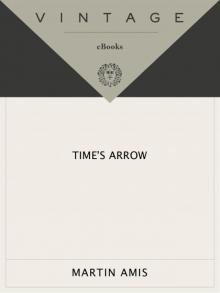 Time's Arrow
Time's Arrow Experience: A Memoir
Experience: A Memoir Einstein's Monsters
Einstein's Monsters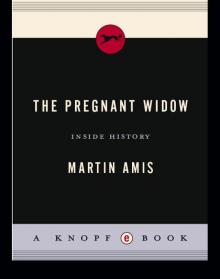 The Pregnant Widow
The Pregnant Widow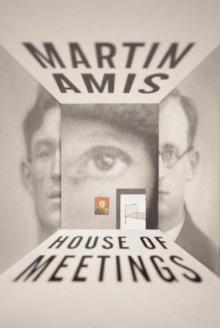 House of Meetings
House of Meetings The Information
The Information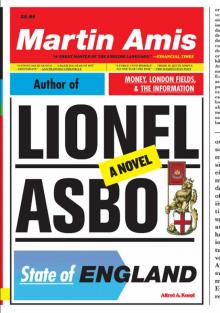 Lionel Asbo: State of England
Lionel Asbo: State of England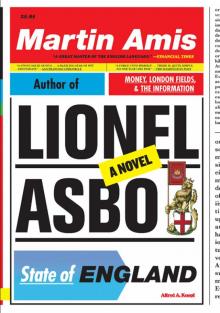 Lionel Asbo
Lionel Asbo Heavy Water and Other Stories
Heavy Water and Other Stories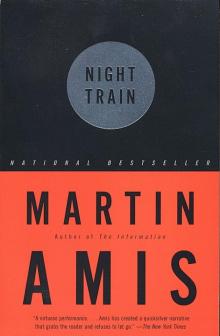 Night Train
Night Train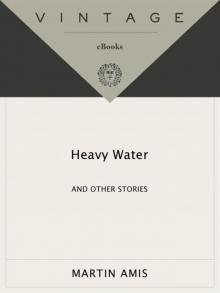 Heavy Water
Heavy Water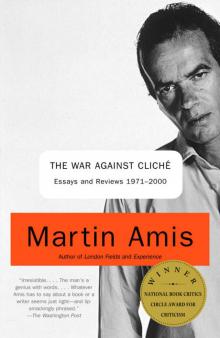 The War Against Cliche: Essays and Reviews 1971-2000 (Vintage International)
The War Against Cliche: Essays and Reviews 1971-2000 (Vintage International)